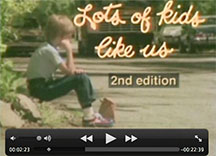MODULE II: Awareness
Other Options to Exercise in Conjunction
with this Module
Competency 1 - Be aware of the:
Generally accepted definition of alcohol and other drug dependence
Societal stigma attached to alcohol and other drug dependence
Competency 2 - Be knowledgeable about the:
Signs of alcohol and other drug dependence
Characteristics of withdrawal
Effects on the individual and the family (household)
Characteristics of the stages of recovery
Competency 3 - Be aware that possible indicators of the disease may include,
among others:
Marital conflict, Family violence (physical, emotional and verbal), Suicide, Hospitalization,
or Encounters with the criminal justice system
Competency 4 - Understand that addiction erodes and blocks religious and spiritual development; and be able to effectively communicate the importance of spirituality and the practice of religion in recovery, using the scripture/sacred writings, traditions and rituals of the faith community
1. Aid your students in visualizing what it is like for children to grow up in the midst of such chaos, uncertainty, perhaps violence and fear. If you have the time and opportunity, you may wish to have them role play a scene from the life of an alcoholic family or a member of the class may be willing to give the rest of the students a first hand account of her or his experience.
2. It is helpful likewise, if you can connect with an Adult Children of Alcoholics (ACOA) or Al-Anon group to have a representative of that group come and share her/his personal story of growing up in this kind of an environment if no one in the class is willing to share her/his experience. The impact of addiction on children is often best understood when hearing about the experience from someone who has lived through it.
3. You may wish to secure a video, DVD or film that portrays these experiences visually so that students can identify and better understand what is transpiring in the lives of many people in their respective faith communities. The National Association for Children of Alcoholics (NACoA) has a number of excellent resources. You can contact them at 301-468-0985 or at nacoa@nacoa.org.
4. There may be local agencies or treatment centers that would be willing to provide speakers, share information and resources with your class. People who are professionally trained in the area of addiction are usually quite willing to share their insights and information for a modest fee or for no cost at all. Consult with your local board of social services to ascertain what may be available for you to further elaborate on issues covered in this module.
Module Home • Introduction • General Awareness Information • Salient Features Concerning Alcoholism • Stages of Alcoholism
Physiological Impact of Alcoholism • Other Options to Exercise in Conjunction with this Module

